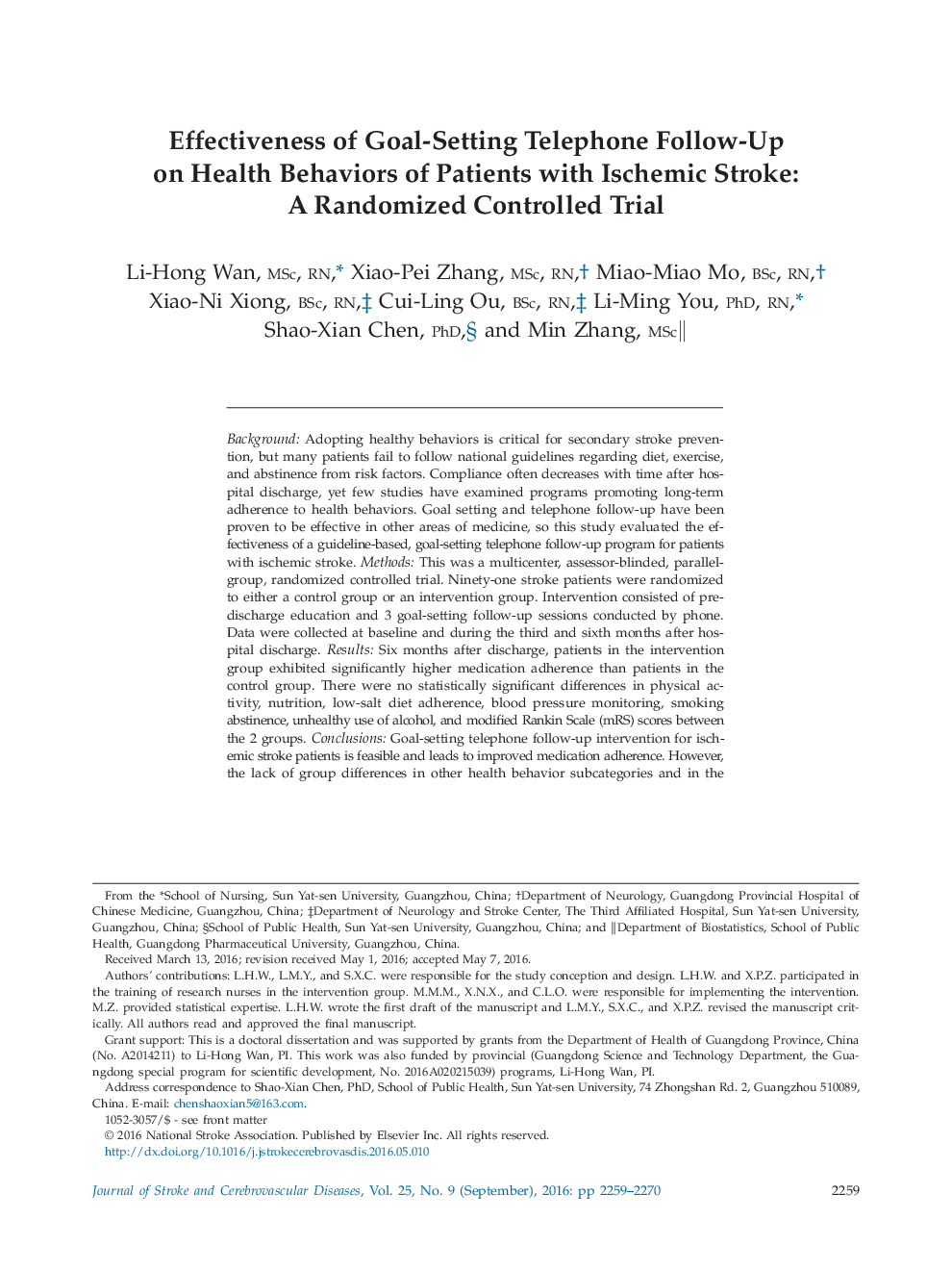| Article ID | Journal | Published Year | Pages | File Type |
|---|---|---|---|---|
| 2703681 | Journal of Stroke and Cerebrovascular Diseases | 2016 | 12 Pages |
BackgroundAdopting healthy behaviors is critical for secondary stroke prevention, but many patients fail to follow national guidelines regarding diet, exercise, and abstinence from risk factors. Compliance often decreases with time after hospital discharge, yet few studies have examined programs promoting long-term adherence to health behaviors. Goal setting and telephone follow-up have been proven to be effective in other areas of medicine, so this study evaluated the effectiveness of a guideline-based, goal-setting telephone follow-up program for patients with ischemic stroke.MethodsThis was a multicenter, assessor-blinded, parallel-group, randomized controlled trial. Ninety-one stroke patients were randomized to either a control group or an intervention group. Intervention consisted of predischarge education and 3 goal-setting follow-up sessions conducted by phone. Data were collected at baseline and during the third and sixth months after hospital discharge.ResultsSix months after discharge, patients in the intervention group exhibited significantly higher medication adherence than patients in the control group. There were no statistically significant differences in physical activity, nutrition, low-salt diet adherence, blood pressure monitoring, smoking abstinence, unhealthy use of alcohol, and modified Rankin Scale (mRS) scores between the 2 groups.ConclusionsGoal-setting telephone follow-up intervention for ischemic stroke patients is feasible and leads to improved medication adherence. However, the lack of group differences in other health behavior subcategories and in themRS score indicates a need for more effective intervention strategies to help patients reach guideline-recommended targets.
